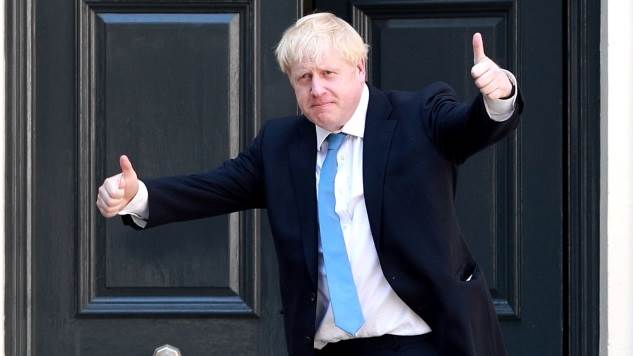UK PM interrogated under police caution, in a first
This is the first time in UK history a British Prime Minister is interviewed under police caution.
-

Boris Johnson.
A copy of one of the official questionnaires sent to suspects of the partygate scandal revealed that insiders on 10 Downing Street are interrogated under police caution, and are asked if they have a "reasonable excuse" for their participation in gatherings during a national lockdown.
As an alternative to criminal prosecution, a police caution is rather a formal warning given by the police to individuals who have admitted guilt, but don't qualify for criminal prosecution. A person may refuse to admit guilt and reject the police caution, however, then they'd be subject to criminal prosecution.
Johnson has recently submitted his questionnaire to the Metropolitan police, possibly arguing that he had attended social events in a work capacity.
See this: A timeline of scandals: Boris Johnson partying
The police caution, in the copy of the document obtained by ITV, is written explicitly: “You do not have to say anything but it may harm your defence if you do not mention when questioned something which you subsequently rely on in court. Anything you do say may be given in evidence.”
“This is an embarrassment that for the first time in UK history we have a PM interviewed under police caution," said Angela Rayner, the deputy leader for the Labour party.
“What was the purpose of your participation in that gathering?” and “Did you interact with, or undertake any activity with, other persons present at the gathering. If yes, please provide details" were also questions in the document, in addition to a confirmation of attendance at specific events.
The questionnaire offers recipients a "lawful exception" or "reasonable excuse" for attending, for which Johnson hired a lawyer for his responses.
The Met is still sending the questionnaires to some officials, and is deciding on whether or not to impose fixed penalty notices for breaking the rules.
The Met is looking into the participation in 12 social events, many of which Johnson has attended. The decision to investigate was especially triggered after the release of the Sue Gray report, which is yet to be fully published after the police finish their work.
Johnson's allies have defended Johnson and given him justification for his attending of events. However, the effects are impending.
If Johnson were to take a fixed penalty notice for rules he himself drew up and broke, then this will bring more letters asking for a vote of no confidence. If 54 of those letters are sent to Graham Brady, the chair of the 1922 Committee, his premiership is likely to be over.

 3 Min Read
3 Min Read








